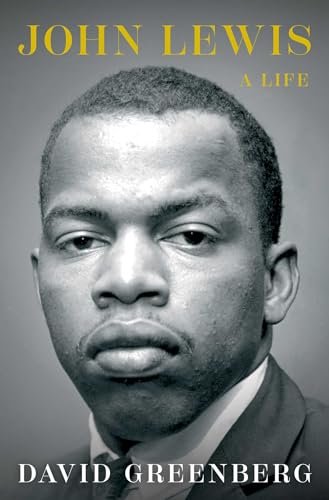
Book Review of John Lewis: A Life
A Life Worth Learning From: Reflecting on "John Lewis: A Life"
When I picked up "John Lewis: A Life" by David Greenberg, I felt a familiar tug at my heartstrings. Having immersed myself in Lewis’s journey through graphic novels like the March Trilogy and short biographies, I was eager to delve deeper into the complexities of a man who not only shaped civil rights history but lived it with unwavering conviction. This full-length biography represents an opportunity to explore layers of Lewis’s life that I hadn’t encountered before—an invitation to tread alongside him through the various challenges and triumphs that defined his remarkable journey.
Greenberg’s exhaustive research, drawing from hundreds of interviews and personal papers, offers a refreshing perspective on Lewis’s life while emphasizing his intimate struggles. One of the standout elements for me was how it humanizes a figure often glossed over in historical narratives. Yes, Lewis was a leader at a staggering young age—pioneering the Nashville Student Movement and speaking at the March on Washington just three years later—but the biography also highlights his vulnerability, particularly the crisis of purpose he faced at 26 after leaving SNCC. This pivotal moment, when he found himself “with no job, unmarried, and unsure what to do,” struck me deeply, illustrating that even the fiercest advocates for justice grapple with doubt and the search for identity.
Greenberg’s writing is both engaging and accessible. He weaves a narrative that isn’t merely chronological but thematic, which adds depth to Lewis’s evolution. The pacing naturally reflects the tumult of Lewis’s life—quick, heart-pounding moments during protests and slower, contemplative chapters during periods of introspection. I found myself particularly drawn to the juxtaposition of his early ideologies rooted in nonviolence and the political realities he faced later in life. The book avoids the trap of lionization, presenting Lewis as a multifaceted individual with flaws and failings, making his achievements even more remarkable.
One standout passage that resonated with me was when Greenberg reflected on Lewis’s belief in the power of “good trouble.” This became a mantra that shaped Lewis’s approach to advocacy, allowing him to persistently challenge injustices while remaining anchored in his principles. The reminder that taking action—even when it’s uncomfortable or unpopular—can spark significant change is a vital takeaway that transcends time.
As I reached the closing chapters, I began to contemplate the book’s handling of Lewis’s faith. While Greenberg touches upon this aspect, I felt it could have been more thoroughly explored, especially considering how integral Lewis’s Christian beliefs were to his sense of justice and purpose. In this context, Lewis would be a fitting subject for Eerdman’s Library of Religious Biography series, a recognition of how faith and activism intertwined in his life.
In conclusion, "John Lewis: A Life" is a poignant exploration of a man whose legacy is woven into the very fabric of American history. I would highly recommend this biography to anyone interested in civil rights, political activism, or simply the human experience. Whether you’re a longtime admirer of Lewis or a newcomer to his story, this book will undoubtedly deepen your understanding of his profound impact. For me, it was more than just a read; it served as a renewed call to action, reminding me of the enduring courage and dedication needed to foster change in our world today.






